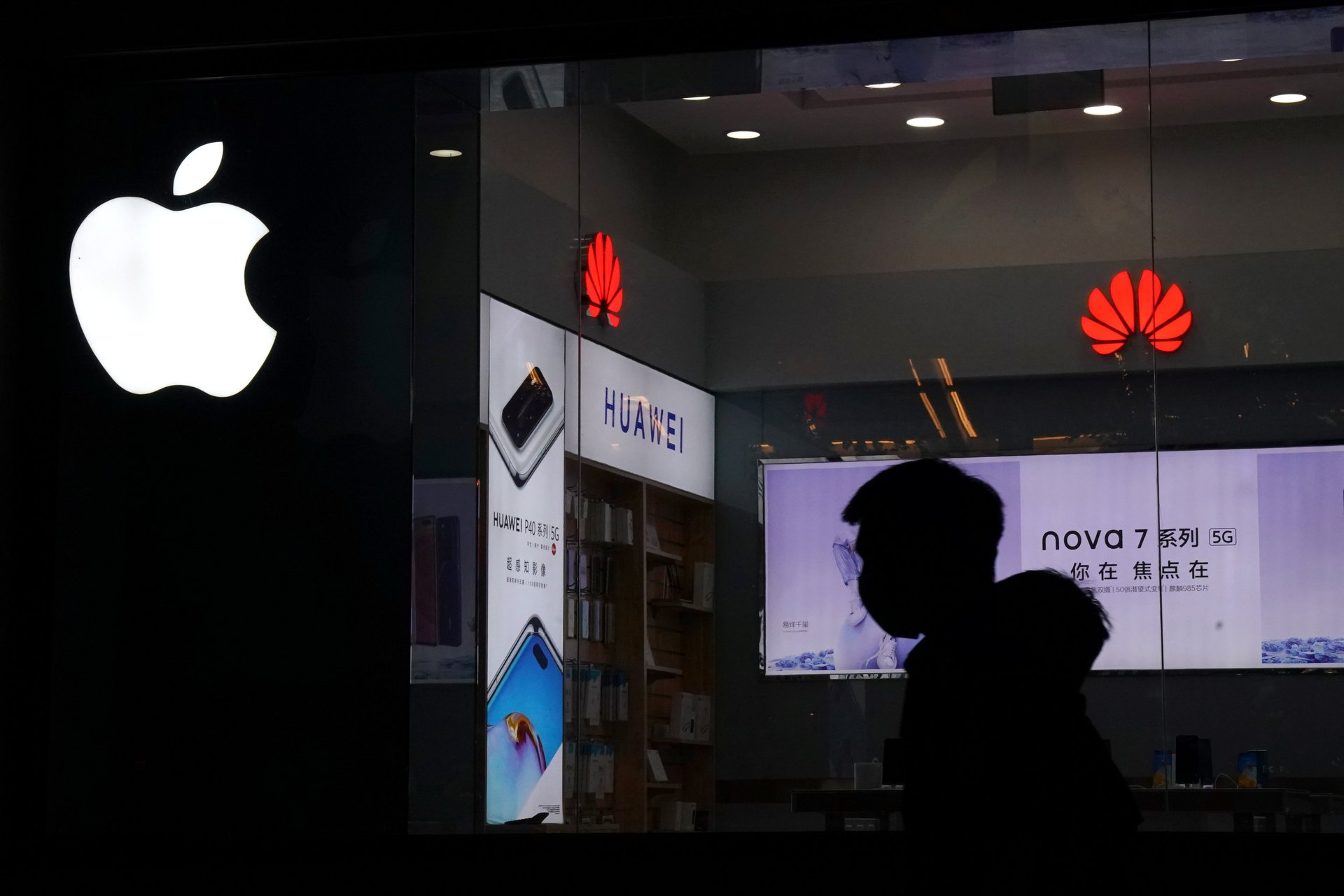The Apple car is dead. But Chinese rival Huawei is charging ahead
Apple wanted to build cars. Huawei wants to be a supplier for cars — and an automotive platform giant

A decade and billions of dollars later, Apple is reportedly axing its electric car project.
Suggested Reading
Meanwhile, its Chinese smartphone rival, Huawei, has been pushing ahead with its automotive endeavors. The company develops and supplies a range of technologies for the car industry—but is steering well clear of physically manufacturing a car by itself. Instead it develops things like smart driving systems, powertrains, battery management software, and radars and cameras, and also collaborates with established automakers to jointly launch a new brand and build cars together.
Related Content
Apple and Huawei took different bets on cars: the former wanted to build cars, the latter is building things for cars. And for now, it looks like Huawei’s was the winning bet.
Apple 0, Huawei 1?
Apple was always not-so-secret about its intentions to build an electric car. Huawei, on the other hand, has repeatedly said that it would not be in the business of making cars. Technically, it wouldn’t be a fair apples-to-apples comparison to benchmark the death of the Apple car against Huawei’s continuing EV efforts.
But if we were to broaden the parameters to look the two companies’ attempts to break into the automotive business writ large — and not just the act of manufacturing a vehicle — then it appears Huawei is ahead in the game.
Instead of opting for the capital intensive project of manufacturing cars, Huawei decided to develop hardware components, software, smart driving systems, cockpit systems, and communications and data platforms for cars. In short, Huawei wanted a slice of the burgeoning EV industry by building what it calls an “ecosystem” for smart cars.
That ecosystem is growing: according to an automotive analyst at the brokerage Southwest Securities, as of December 2022, Huawei had over 300 partners across the upstream and downstream segments of the car industry.
This approach aligns with Huawei’s longstanding belief that the consumer internet as defined by platform giants like Yahoo, Google, Facebook, and Tencent will eventually evolve into an industrial internet of things where cars, factories, the electrical grid, and all sorts of devices are connected over the cloud. That industrial internet will need platform giants, too — and Huawei intends to be one of them. Or as one strategic consultant put it last year, Huawei aims to become “the hegemon of the global Internet of Things industry chain.”
Not game over for Apple yet
Despite its advancements, Huawei still faces challenges in the automotive sector. Dominant Chinese EV makers may be wary of depending on Huawei as an automotive supplier, lest Huawei eat their lunch when it finally decides to get into car manufacturing. Overseas car manufacturers will likely shun Huawei given U.S. sanctions on the company. And Huawei’s car-making partnerships with second-tier Chinese carmakers may flop.
Meanwhile, Chinese industry analysts aren’t writing off Apple from the car realm quite yet.
“Is there really no threat from Apple? In fact, it is not the case,” notes an article published today in Automotive Headlines. “Although Apple no built cars, it switched to generative AI...And [Apple’s] generative AI may also slowly extend to automotive products.”
